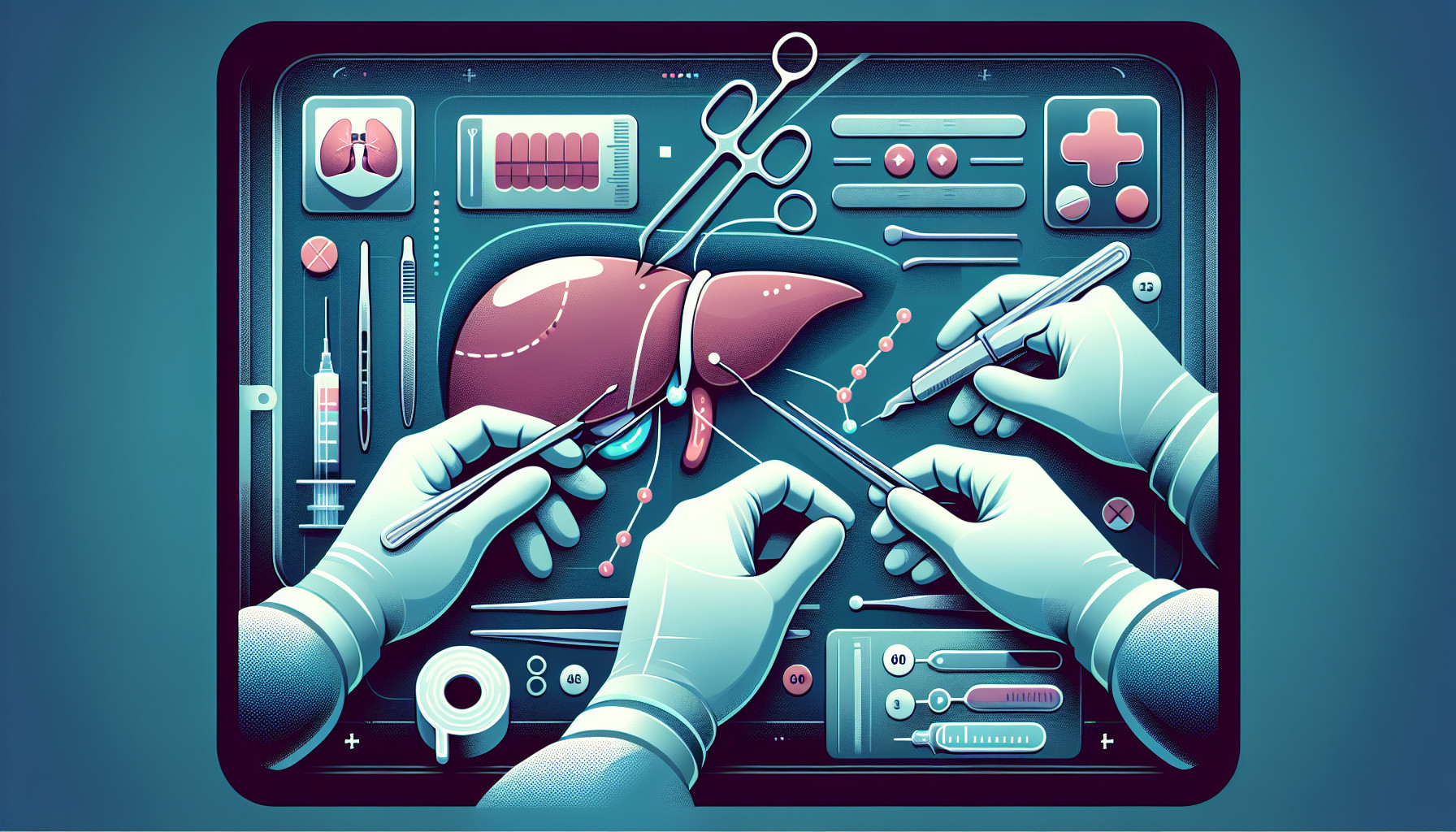Our Summary
This research paper looked into the issue of nonalcoholic fatty liver disease (NAFLD) in obese patients who are undergoing weight-loss surgery (also known as bariatric surgery). NAFLD is a health problem that can lead to serious conditions such as liver cancer or the need for a liver transplant, so it’s important to detect it early. Currently, a liver biopsy (taking a small sample of liver tissue) is the most reliable way to diagnose NAFLD, but this procedure can have complications. This study aimed to see how common NAFLD was in patients having bariatric surgery, and to evaluate the effectiveness and risks of liver biopsies during such operations.
The researchers found that about a quarter of the patients had NAFLD, but the results varied a lot between different studies. They also found that non-invasive tests (tests that don’t involve taking tissue samples) weren’t very good at identifying which patients had a normal liver and which didn’t. However, doing a biopsy during bariatric surgery did carry some risks.
The study concluded that there’s no clear consensus on whether to perform liver biopsies during bariatric surgery, and suggested that a future study could look at the use of non-invasive tests to help decide whether a biopsy is necessary.
FAQs
- What is the most reliable way to diagnose nonalcoholic fatty liver disease (NAFLD)?
- What are the risks associated with performing a liver biopsy during bariatric surgery?
- What was the main conclusion of the study regarding the use of liver biopsies in detecting NAFLD in patients undergoing weight-loss surgery?
Doctor’s Tip
A doctor might tell a patient undergoing a liver biopsy to follow their pre-procedure instructions carefully, such as fasting before the procedure and avoiding certain medications. They might also advise the patient to rest and take it easy after the biopsy to allow the liver to heal properly. Additionally, the doctor may recommend keeping an eye out for signs of complications, such as excessive bleeding or infection, and to contact them immediately if any concerning symptoms arise.
Suitable For
Patients who are typically recommended for a liver biopsy include those with suspected liver disease, such as NAFLD, hepatitis, cirrhosis, or liver cancer. Additionally, patients who have abnormal liver function tests, unexplained liver enlargement, or abnormal liver imaging results may also be recommended for a liver biopsy. Patients with risk factors for liver disease, such as obesity, diabetes, high cholesterol, or a history of heavy alcohol use, may also be considered for a liver biopsy. Ultimately, the decision to perform a liver biopsy is based on the individual patient’s medical history, symptoms, and risk factors, as well as the recommendations of their healthcare provider.
Timeline
Before liver biopsy:
- Patient undergoes initial evaluation to determine if a liver biopsy is necessary.
- Patient may undergo blood tests, imaging tests, and other diagnostic procedures to assess liver health.
- Patient may be given instructions on fasting or medication adjustments prior to the biopsy.
During liver biopsy:
- Patient is prepped for the procedure and given anesthesia to numb the area.
- Doctor uses a needle to extract a small sample of liver tissue for analysis.
- Patient may experience mild discomfort or pain during the procedure.
After liver biopsy:
- Patient is monitored for a few hours to ensure there are no complications.
- Patient may experience mild pain, bruising, or bleeding at the biopsy site.
- Results of the biopsy are analyzed to diagnose any liver conditions or diseases.
- Patient may be given further instructions on post-biopsy care and follow-up appointments.
What to Ask Your Doctor
- What are the potential risks and complications associated with a liver biopsy during bariatric surgery?
- How will the results of the liver biopsy impact my treatment plan going forward?
- Are there alternative methods of diagnosing NAFLD that could be considered instead of a liver biopsy?
- How experienced is the medical team in performing liver biopsies during bariatric surgery?
- What steps will be taken to minimize the risks of a liver biopsy during bariatric surgery?
- How long will it take to receive the results of the liver biopsy?
- What follow-up care or monitoring will be needed after the liver biopsy is performed?
- Are there any specific instructions or restrictions I should follow before and after the liver biopsy?
- How will the liver biopsy be performed during the bariatric surgery procedure?
- What are the possible outcomes or implications of the liver biopsy results for my overall health and well-being?
Reference
Authors: Barbois S, Arvieux C, Leroy V, Reche F, Stürm N, Borel AL. Journal: Surg Obes Relat Dis. 2017 Oct;13(10):1780-1786. doi: 10.1016/j.soard.2017.07.032. Epub 2017 Aug 14. PMID: 28935200
